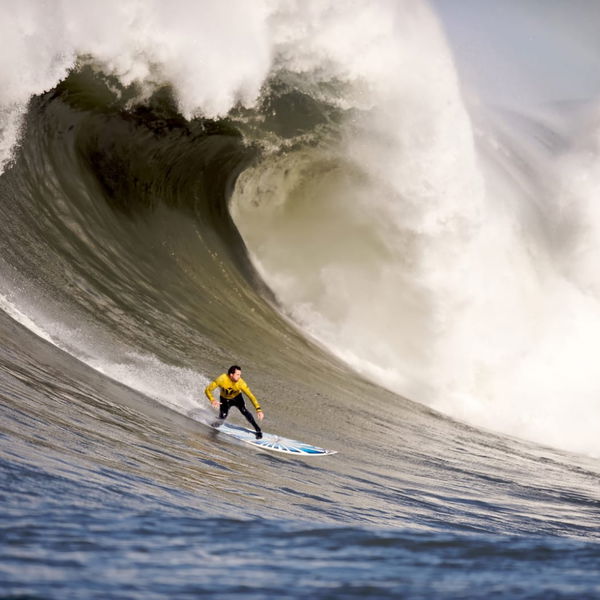

It was the year 1912 when Duke Kahanamoku expressed his wish to see surfing in the Olympics for the first time. Kahanamoku, a Hawaiin who bagged a gold medal in Olympic swimming, is considered the father of modern surfing. Before he gave words to his wish during the Summer Olympics in Stockholm, the very thought was a mere dream. Almost a century later, the dream came true due to the never-ending dedication of Fernando Aguerre, who was elected as the president of the International Surfing Association in 1994.
Aguerre made it clear to then IOC President, Juan Antonio Samaranch that he was going to turn this dream into reality one day, and so he did. Surfing was officially included in the Tokyo Summer Olympics, and the Brazilian Italo Ferreira bagged the gold medal. The recognition of surfing as an Olympic sport opened several doors, all leading to inclusivity and opportunities. The sport is now able to reach new heights through the Olympic Solidarity program.
ADVERTISEMENT
Article continues below this ad
Olympic surfing grant leads to African development program
The positive after-effects of the inclusion of the sport in the Games were far-reaching. The top-most athletes from various countries were able to showcase their wave-riding prowess at the most prestigious sports platform. In addition to that, even countries that could not visit the Olympics were able to experience surfing in all its glory. The reason is Olympic Solidarity.
View this post on Instagram
According to the official website of the International Surfing Association, “Olympic Solidarity is the International Olympic Committee’s (IOC) global development initiative aimed at supporting the National Olympic Committees (NOCs) around the world, particularly those with the greatest need.” In April 2023, the governing body of the sport at the Olympics, the International Surfing Association, selected representatives from 10 nations, Dakar, Senegal in Africa. The ISA announced the same on their official Instagram handle and included the caption, “ISA and Olympic Solidarity… Africa Youth Development Program is on in Senegal!!”
National Olympic Committees from 10 African nations chose their own champion to send into the program. The Olympic solidarity program ensured that surfing can reach countries even where the sport is not that developed. According to Inertia, Senegal’s Oumar Seye, president of the African Surfing Confederation, said, “Not every country has the opportunity to fly and travel. It’s important for these kids from different parts of Africa to exchange culture and surfing with other African surfers and understand that it’s possible to make it as a surfer in Africa.” Hence, because of the program, nations who might not have the resources to participate can also feel included in the Olympics.
ADVERTISEMENT
Article continues below this ad
The beginning of inclusivity
In 2014, when Thomas Bach became the new president of the IOC, he started the exercise of including new sports in the Olympics. Therefore, the ISA was given a renewed hope of bringing their sport into the fold as well. In 2016, Duke’s dream officially came true when the IOC voted to make surfing an Olympic sport. When it comes to this particular sport, the Olympic Solidarity program teaches technical moves and imparts knowledge about surfing to both coaches as well as surfers. The program also hopes to spread Olympic Agenda Values. Last year, the program was held in El Salvador, and this year, in Senegal.

via Imago
Tokyo Olympics: Surfing Australian surfer Owen Wright competes in a first-round heat at the Tokyo Olympics on July 25, 2021, at Tsurigasaki Surfing Beach in Ichinomiya, Chiba Prefecture, eastern Japan. PUBLICATIONxINxGERxSUIxAUTxHUNxONLY A14AA0000754079P
The coaches and surfers attain much-needed technical advancement t, so as to make a basis for the next generation of surfers on the continent. One of the reasons for choosing Senegal was the inclusion of surfing in the 2026 Youth Olympic Games, which will be held in Dakar. This year, the program was helmed by Tasha Mentasti of South Africa and Oumar Seye of Senegal. They are both expert officials working with the ISA and were aided by African professional athlete ambassadors Natasha van Greunen, Joshe Faulkner, and Cherif Fall.
ADVERTISEMENT
Article continues below this ad
Watch This Story: “I’d like to see the books”: Surfing Hall-of-famer questions WSL on choice of major sponsorships
ADVERTISEMENT
ADVERTISEMENT
ADVERTISEMENT
ADVERTISEMENT

